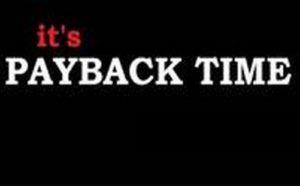The Comptroller of the Currency has finally handed down its punishment for the compliance failures that helped bring about an end to the tenure of Citibank CEO Michael Corbat.

After Citi announced that Corbat would be replaced by Jane Fraser, who will soon become the first CEO of an American megabank, it was revealed that the Office of the Comptroller of the Currency was preparing to fine Citigroup for compliance failures that had apparently become part and parcel of Corbat’s executive blindness – an issue he had neglected, that ultimately lead to his downfall – or at least that’s what we’ve taken from the press reports.
On Wednesday evening, Bloomberg reported that Citi had struck a deal with the OCC and the Fed to fix several “longstanding compliance problems” involving its risk-control and reporting measures.
As part of the deal, Citi will pay a $400 million fine. It’s a slap on the wrist, but news of the settlement hit Citi’s shares after hours (though at least the Feds had the decency to wait until after the close to break the news). The bank’s board must also now submit a report as part of the deal outlining how it intends to fix these problems.
Citigroup Inc. has agreed to pay $400 million and must seek the government’s sign-off for major acquisitions after regulators identified several longstanding problems with its risk controls.
Citigroup Inc. has agreed to an order from the Federal Reserve to fix several longstanding problems with its risk controls, according to a statement released Wednesday. The Fed’s cease-and-desist order — issued alongside a related sanction from the Office of the Comptroller of the Currency — directs the lender to “correct practices previously identified by the Board in the areas of compliance risk management, data quality management, and internal controls.” Citigroup was given a series of deadlines to analyze and report back to the Fed on how it’s fixing issues identified by the regulator. Within 120 days, the bank’s board of directors must submit a report detailing how it will hold senior management accountable and how executive compensation will be “consistent with risk management objectives,” the Fed said.
At the same time, the Federal Reserve issued a cease-and-desist order that directs the lender to “correct practices previously identified by the Board in the areas of compliance risk management, data quality management, and internal controls.”
As Bloomberg explained, the deal is just one more costly misstep for the bank, as it must now divert money away from lucrative technology investments and building out its cutting edge high frequency trading capabilities and instead hire more compliance officers who will hide in a basement in Sarasota or where ever and crank out SARs, as the FinCEN leaks revealed.
The bank noted it’s made structural changes to better comply with the regulators’ orders, including by hiring Karen Peetz as its new chief administrative officer to “steer these programs to completion.”
The orders come just weeks after Citigroup mistakenly sent $900 million to lenders of the cosmetics giant Revlon Inc. The bank ultimately chalked the wayward payment up to employee error, noting it was in the middle of transitioning to new software for its syndicated loan business.
The ensuing legal battle was an embarrassment for the bank as many of the lenders balked at Citigroup’s pleas to return the funds. For regulators, who began scrutinizing the mistaken payment within days, the incident was illustrative of broader problems at the bank.
“We appreciate the urgency of the tasks at hand and we are committed to fulfilling our obligations to all of our stakeholders,” Citigroup said in the statement.
The fine may be a slap on the wrist, but Citi has already pledged to spent $1 billion on these costs this year. How much more will the bank be required to spend?
Source: ZeroHedge
StevieRay Hansen
Editor, BankstersCrime
God often uses men who are not of the best moral character. Pharaoh, Nebuchadnezzar, Cyrus, Herod, and Trump (amongst others), to accomplish His will in events He orchestrates during human history. We either trust the sovereignty of God or we don’t. Nothing happens apart from Him…
The best index to a person’s character is how he treats people who can’t do him any good, and how he treats people who can’t fight back…
The Birth Pains Are Growing Stronger….
One of the signs of ruling class collapse is when they can no longer enforce the rules that maintain them as a ruling class. When the Romans started making exceptions to republican governance, it was a matter of time before someone simply decided the rules no longer applied to them. Perhaps the robot historians will consider Obama our Marius or Sulla. Maybe that person is in the near future. Either way, the rule of law is over and what comes next is the rule of men.
“Don’t piss down my back and tell me it’s raining.” Outlaw Josey Wales
WE NOW LIVE IN A WORLD THAT IS PURE FABRICATION

![]()




